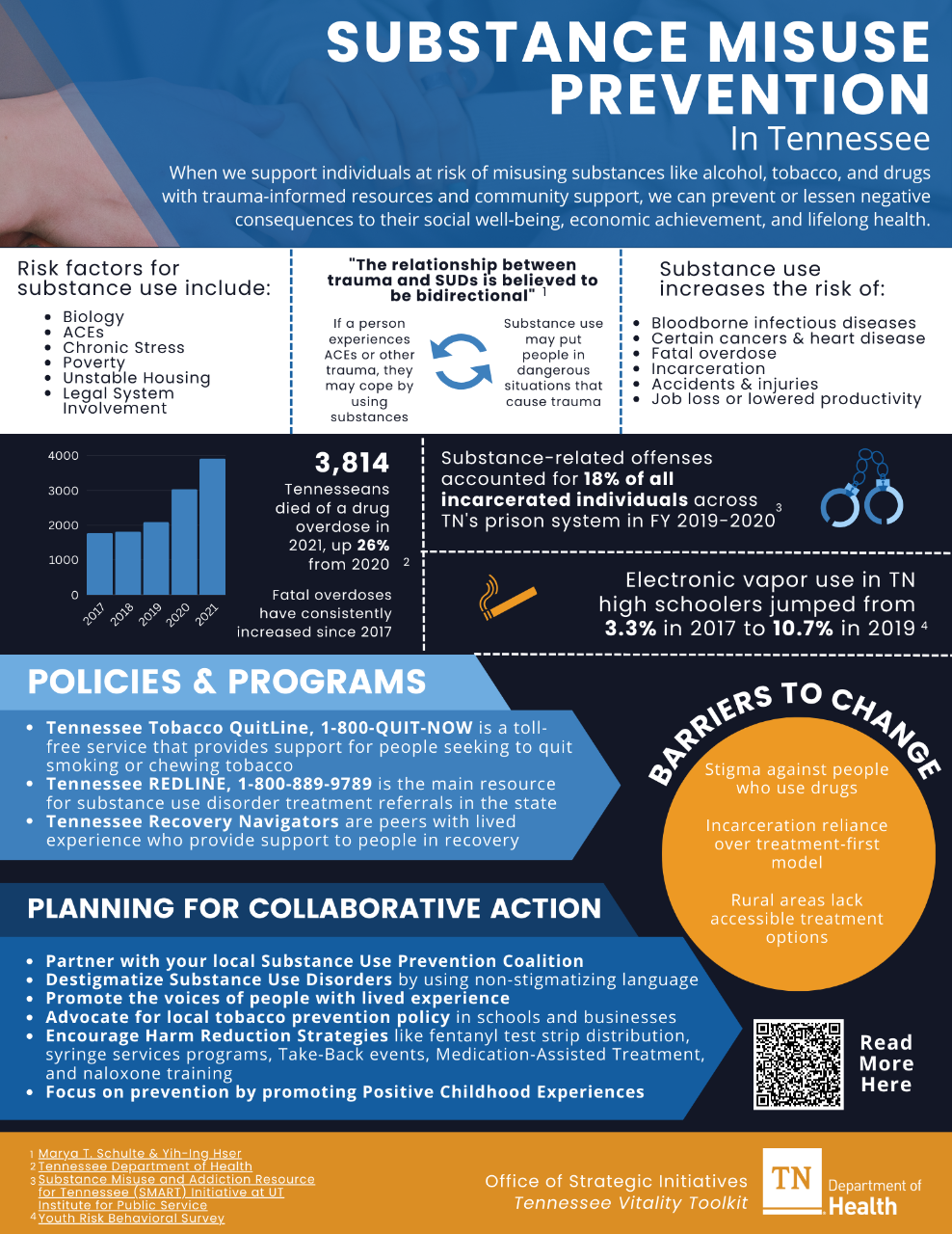Substance Misuse Prevention
Thousands of Tennesseans are impacted by substance use every year. Communities have felt the stress of the COVID-19 pandemic, economic strain, and social unrest, which have only made the impacts of substance use worse. Opioids, alcohol, tobacco, stimulants, and other substances can cause serious physical, mental, and social injury.
- 3,814 Tennesseans died of a drug overdose in 2021, an increase of 26% from the 3,032 deaths in 2020
- Opioids were involved in 80% of fatal overdoses in Tennessee, most of which involved illicit fentanyl
- Deaths involving any stimulant, including methamphetamine and cocaine, have increased 245% since 2017 statewide
- The percentage of high school students who reported currently using electronic vapor products frequently (including e-cigarettes and vapes) in the CDC’s Youth Risk Behavior Survey jumped from 3.3% in 2017 to 10.7% in 2019
Non-judgmental access to treatment and coordinated care are critical to success when resisting these negative impacts. Fortunately, many communities already have strong partnerships across the state, such as Substance Use Prevention Coalitions (SUPCs),that have devoted their time and resources to addressing the negative effects of substance use and misuse to create the healthiest versions of their communities possible. County Health Councils can increase support for their communities by promoting prevention efforts, connecting available resources, and pushing for a culture change encouraging treatment over punishment. To ensure everyone has access to well-being, we must reduce stigma and treat those who use substances with care and respect.
Substances can have a very strong effect on how the brain works and, in turn, can impact many other parts of the body.
Substance use is closely linked with mental health. When people turn to substances to handle chronic stressors like unemployment, violence, lack of housing, or Adverse Childhood Experiences (ACEs), their mental health can get worse as their substance use disorder develops.
Long-term substance use impairs the brain and can make it harder for a person to enjoy day-to-day activities without substances. A larger amount of the substance is needed to feel pleasure as their tolerance increases, which increases the risk of other health issues, including overdose.
Substance use is a risk factor for:
- Bloodborne infectious disease from injection drug use
- Certain cancers
- Heart disease
- Accidents and injuries
- Hypertension and stroke
- Liver disease
- Fatal and nonfatal overdose
- Anxiety disorders
- Depression
- Suicide
Substance-related problems are expensive to Tennesseans. Smoking alone is associated with billions of dollars in productivity losses in Tennessee. Incarceration is expensive, yet in Tennessee substance-related offenses accounted for 18% of all incarcerated individuals across the state’s prison system as of fiscal year 2019-2020, according to the UT Institute for Public Service.
It’s important for communities to provide trauma-informed, non-stigmatizing treatments for substance misuse so those who need help can easily find it. When community partners work together on the social drivers that lead to substance misuse, everyone benefits.
Any person can develop a substance use disorder (SUD), but certain groups may be more likely to develop SUDs and can face barriers when it comes to finding treatment.
Racial and Ethnic Minorities
Rates of past year illegal substance use, substance use disorder, and alcohol use disorder were highest for American Indian or Alaska Native (AI/AN) individuals and for people reporting two or more races than for all other racial/ethnic groups, and AI/AN youth are more likely than other American youth to use substances earlier. For those who need SUD treatment, a SAMHSA report found, White individuals receive it 23.5% of the time compared to 18.6% for Black individuals and 17.6% for Hispanic individuals. Overdose death rates for Black individuals increased from 24.7 per 100,000 in 2019 to 36.8 in 2020, 16.3% higher than for White individuals, according to a recent study by UCLA researchers.
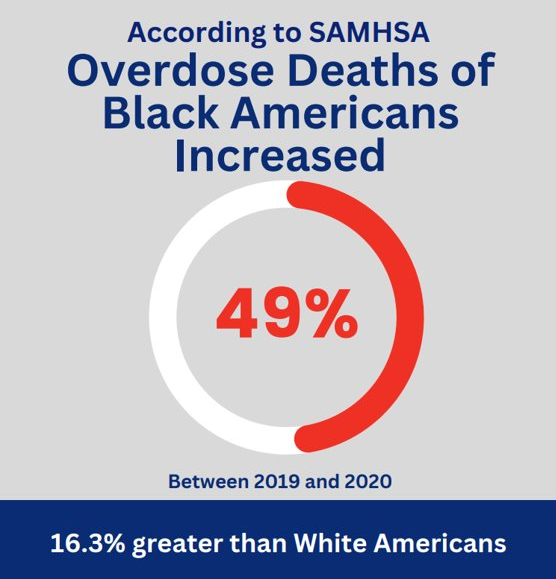
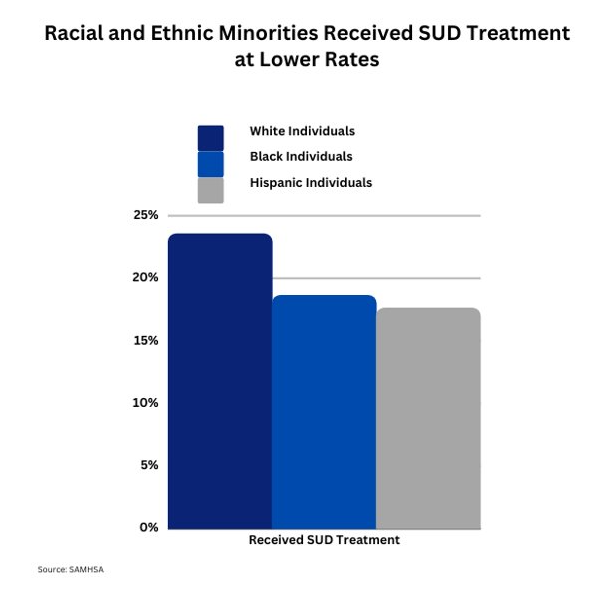
Veterans
The most common substances used by veterans include alcohol and tobacco, and some veterans may turn to substance use to handle the mental health challenges that come with military service. Female veterans with SUDs, who face higher rates of sexual and domestic violence, may feel uncomfortable asking for treatment in male-dominated spaces and are more likely to have childcare duties that keep them from accessing treatment.
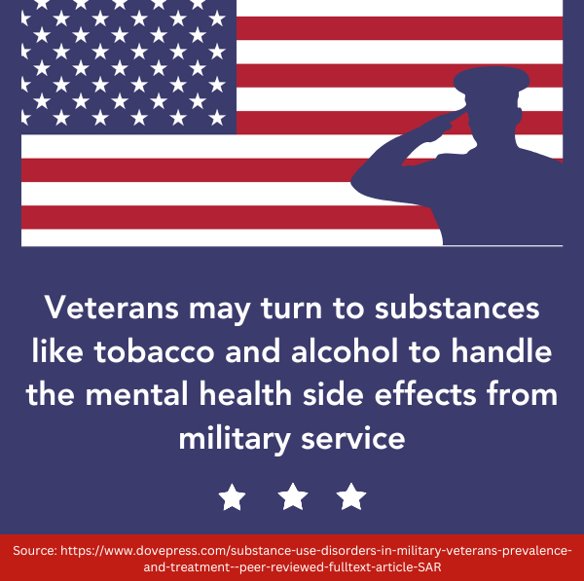
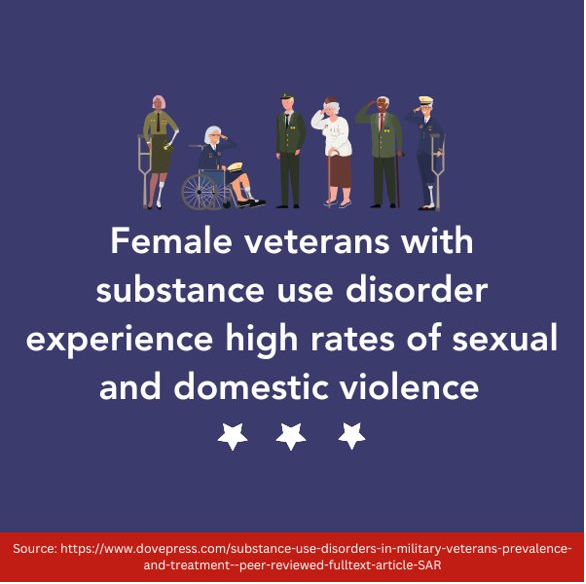
Rural Communities
Behavioral health services are not as readily available in rural communities as they are in more urban areas, making it harder for a person with a substance use disorder to find treatment they can afford quickly. Transportation may be hard to find, making it difficult, or even impossible to get to healthcare appointments and to get home safely. In smaller, close-knit communities, people may be more hesitant to ask for help due to stigma and how others might respond.
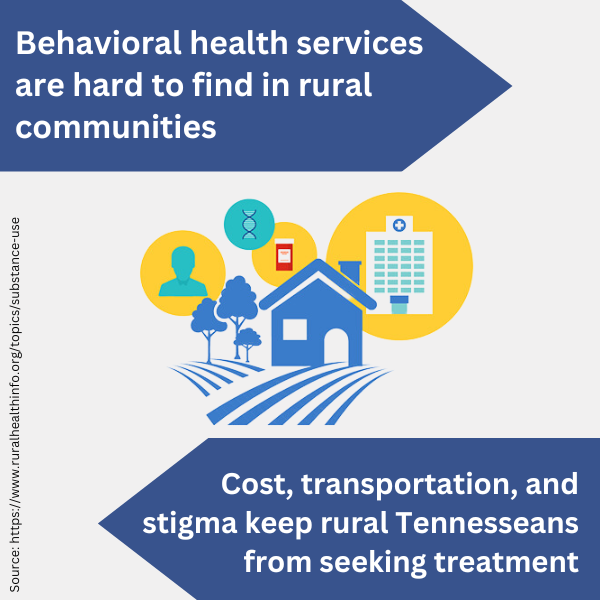
Older Adults
As chronic health conditions get worse with age, many adults are prescribed more medications as they grow older, which increases their risk of substance use disorders or accidental misuse. According to the National Institute on Drug Abuse, the proportion of U.S. adults aged 55 and older using heroin doubled between 2013 and 2015. 65% of people over 65 report “high risk” drinking, and over 10% currently binge drink. Treatment is complicated for this age group, as providers mistake SUD symptoms for common chronic disease symptoms typical in older adults. In relationship with substance use, older adults are at particular risk of suicide and depression.
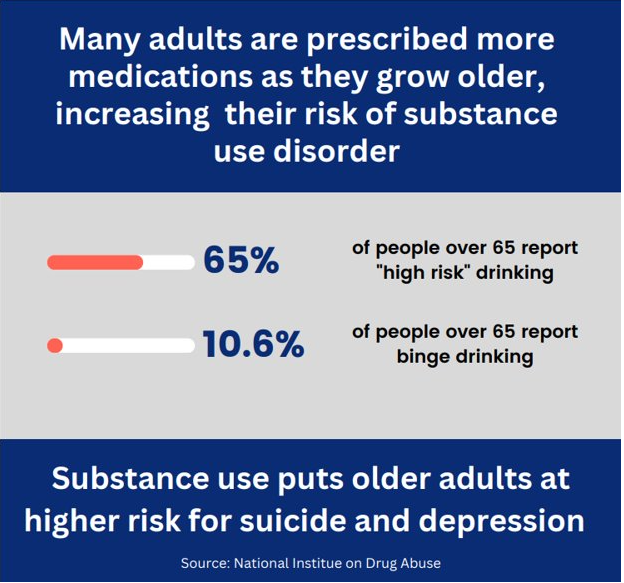
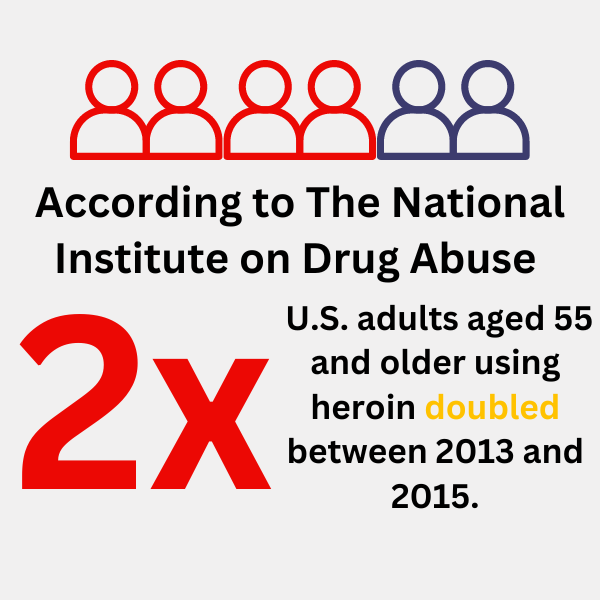
To decrease substance misuse and its impacts in Tennessee, prevention is key. We need to create communities that support people from the start, improving conditions and creating community connectedness.
We also have to meet people where they’re at to reduce the risks of existing substance use disorders. Infection, overdose, and death are real and immediate risks for people who use substances. Harm reduction is an evidence-based approach that focuses on keeping people who use substances alive and as safe as possible while retaining their autonomy and dignity.
Activities and Programs: Evidence-informed, actionable, short-term steps that collaborative groups can take to address priority areas.
Policy and Systems Change: Systems change refers to how organizations or programs — such as school systems or health systems — are connected and work together to improve conditions to make change that lasts. This section contains evidence-informed, actionable, long-term steps that collaborative groups can take to address priority areas.
- Support naloxone training & distribution. Naloxone is a medication that can be used to save someone’s life if they are experiencing an opioid overdose, and anyone can be trained to carry and use it. Health Councils can connect with TDMHSAS Regional Overdose Prevention Specialists (ROPS) who distribute naloxone and provide naloxone training across all 95 counties.
- Promote fentanyl test strip distribution. Fentanyl is a synthetic opioid that can be fatal in even small doses and is often added to other substances without the user’s knowledge. Tennessee law allows for the use of fentanyl test strips and TDMHSAS ROPS are beginning to distribute test strips; contact your regional specialist to learn more about action in your area.
- Advocate for Syringe Services Programs (SSPs), where individuals can go to receive sterile needles, safe disposal containers, HIV testing, linkage to treatment, education, healthcare referrals, and more. Local health departments and non-governmental organizations can apply to the Tennessee Department of Health to operate a SSP, and Health Councils can spread awareness of the existence and importance of SSPs throughout their community with educational campaigns. There are several SSPs located throughout Tennessee; contact your nearest location to connect your Health Council with existing programs.
- Host a Count It, Lock It, Drop It or Take Back Day Event to educate your community and help protect families, especially children and teens, from accidental or recreational misuse. These are also great opportunities to involve law enforcement and local pharmacists in your community.
- Promote the Tennessee REDLINE (1-800-889-9789) and Tennessee Tobacco Quitline (1-800-QUIT-NOW) throughout your community through social media or local newspapers, radios, and businesses. The Quitline is also available online. The more people know about these services, the more likely they are to use them.
- Organize a Change the Language Campaign using tools from Changing the Narrative, and this library of terms from the National Institutes of Health. The words we use to talk about substance misuse can have a big impact, and SUD stigma can cut people off from their support systems when they need it most and make it more difficult to access treatment for SUDs. ROPS also assist with training on stigma and compassion fatigue and are a helpful resource to contact.
- Assist with school tobacco prevention policy in local school districts to introduce, communicate, and maintain appropriate tobacco prevention policies based off model examples. County Health Councils can help districts with communication surrounding the “what and why” of policies so students, staff, and parents understand the content and intent.
- Advocate for smoke-free spaces within the community by working with your local government to pass ordinances regulating the use of smoking and vapor products in age-restricted venues. County Health Councils can talk to mayors and other local leaders about the importance of communities making these decisions around tobacco control when they can.
- Guide parent education on tobacco, alcohol, and other drugs. County Health Councils have a unique opportunity to bridge the educational gap between parents and children about substance use. In addition to educating on the impacts of substance use itself, providing programs that improve family bonding, communication, and parenting skills can be monumentally impactful in youth prevention.
- Increase protective factors for kids by providing mentoring programs, after-school initiatives, art classes, and community-wide events, to create safe and stable relationships across the community. County Health Councils, composed of caring adults representing the whole county, can be an important place to begin fostering these relationships. Health Councils can partner with schools and other groups to promote and host these programs, keeping in mind that “strengthening bonds with the social world can weaken bonds with substance use.”
- Increase Access to Medication Assisted Treatment. Medication Assisted Treatment (MAT) is the use of medications such as buprenorphine, methadone, and naltrexone in the treatment of opioid use disorders (OUD). Licensed opioid treatment programs (OTPs) administer methadone under direct medical supervision, but there are currently only 22 OTPs across the state and several regions that are significantly far from an OTP. Help increase awareness of these programs and provide transportation to and from appointments using volunteer-based models or coordinated service models.
- Advocate for Coordinated Care Models, especially with populations that are at an increased risk of overdose, like those recently released from incarceration. Care coordination, including continuous and open sharing between provider and patient and communication between different healthcare providers, is a core principle of patient-centered care and improves health outcomes and patient satisfaction.
Lawrence County Teen Maze:
The Lawrence County Health Department, in collaboration with the Lawrence County Health Council, Coordinated School Health, and the Lawrence County Substance Abuse Coalition, hosted a Teen Maze on December 7, 2022. Around 400 7th grade students from all over the county were able to participate in the event. The purpose of the activity was to provide a safe environment in which students could realize the serious consequences of certain behavior choices. Students began the maze by drawing random scenarios dealing with alcohol, drugs, sex, and tobacco that dictated their next move. Depending on the scenarios and consequences, students worked their way through the maze visiting stations such as the ER, Court, Funeral, Workforce, College, Healthy Relationships, Rehab, and Jail. Health Department staff and community professionals all ran the event stations. The final stop of the maze was an exit interview that gave students the opportunity to talk with a school-based therapist about their experience.
Contact Amber Chunn at Amber.Chunn@tn.gov
TN Department of Mental Health and Substance Abuse Services
- Tennessee Recovery Navigators are people in long-term recovery who meet patients who have recently overdosed in the Emergency Department and connect them with the substance use treatment and recovery services they need. Navigators maintain a Certified Peer Recovery Specialist (CPRS) Certification in order to use their lived experience to help others find recovery.
- Tennessee Substance Use Prevention Coalitions are powerful community partners working to reduce dependence on harmful and potentially deadly substances such as prescription drugs, alcohol, and tobacco.
- Tennessee Regional Overdose Prevention Specialists (ROPS) offer free trainings and education on opioid overdose across all 95 counties. ROPS also distribute naloxone and were able to distribute more than 300,000 units between October 2017 and June 2022.
- Opioid Treatment Clinics offer Medication-Assisted Treatment (MAT) as a treatment option for some dealing with opioid use disorder. There are currently 22 opioid treatment program clinics across Tennessee, and more information can be found on the TDMHSAS website.
TN Department of Health
- Find Help Now TN is an online tool created in partnership with TDMHSAS, TN REDLINE and Tennessee Tech University’s iCube that helps users find substance misuse treatment based on the type of treatment needed, payment and insurance options available, and location.
- The Tennessee Department of Health Tobacco Use Prevention and Control Program uses CDC evidence-based strategies to reduce tobacco use and tobacco-related disease.
- Save a Life Training is a comprehensive online training that covers what to do in case of an opioid overdose. It explains the signs of an overdose and steps to take when administering naloxone.
- Tobacco Free Schools Toolkit provides tips and resources for educators and school administrators on establishing, communicating, and enforcing tobacco-free policies in schools.
- TNSTRONG Ambassadors are leaders among Tennessee youth who educate and train their peers on tobacco-related issues.
- Tennessee Harm Reduction and Safe Syringe Programs provide comprehensive harm reduction services for people who inject drugs.
- TN Tobacco Quit Line (1-800-QUIT-NOW) provides a free telephone and online tobacco cessation program that includes tobacco cessation coaching, personalized support, and even free nicotine replacement therapy (NRT) for eligible participants.
- The Office of Informatics and Analytics offers interactive dashboards and reports for a detailed understanding of drug overdose and opioid prescription trends in Tennessee.
TN Department of Environment & Conservation
- Tennessee Unwanted Pharmaceutical Takeback Map shows Tennesseans locations across the state where they can drop off unwanted prescription drugs, including operating hours and contact information.
Rural Health Association of Tennessee
- Tennessee Rural Health Prescription Takeback Toolkit is a comprehensive guide for communities hoping to address prescription opioid misuse through take-back events, pharmacist interventions, and community education.
Tennessee Association of Alcohol, Drug, and Other Addiction Services
- Tennessee REDLINE (1-800-889-9789) is the main resource for substance use disorder treatment referrals in the state, where people can call or text any time to receive confidential referrals to treatment and information on substance use disorders.
- TAADAS Clearinghouse is an extensive resource center where readers can access free literature on a range of topics from tobacco to mental health to medication-assisted treatment.
The Action Lab at the Center for Health Policy and Law, Northeastern University
- Changing the Narrative is a network of reporters, researchers, academics, and advocates working to provide “accurate, humane, and scientifically-grounded" information relating to drug use.
